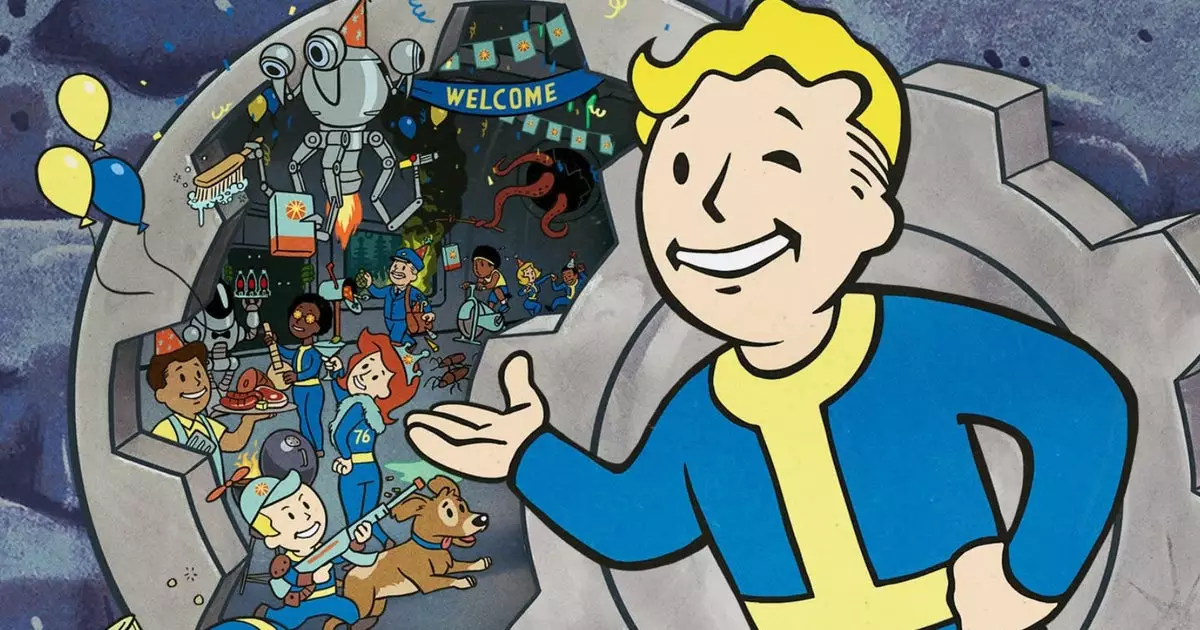In a striking display of solidarity and resolve, the union representing approximately 300 employees from ZeniMax Media, the powerhouse behind popular game franchises like Elder Scrolls, Doom, and Fallout, has voted decisively in favor of potential strike action. This overwhelming mandate comes after nearly two years of negotiation with Microsoft, the company’s parent organization, concerning wages and workplace conditions that have increasingly become untenable. These dedicated game developers and quality assurance (QA) testers are now on the brink of taking a significant stand if meaningful resolutions aren’t reached.
The formation of ZeniMax Workers United (ZWU) in December 2023 marked a pivotal moment for these gaming professionals. Aligned with the Communication Workers of America (CWA), the ZWU aims to amplify their voices in an industry notorious for its pressures and exploitative practices. While Microsoft publicly acknowledged this union, past experiences suggest that acknowledgment does not equate to genuine support for labor rights. The tech giant’s previous agreements aimed at smoothing its acquisition of Activision-Blizzard have been met with skepticism. After all, meaningful labor relations require more than surface-level gestures; they necessitate authentic engagement and compromise.
Addressing Key Concerns: Wages and Work Conditions
At the crux of the dispute are critical issues: wages, remote work flexibility, and the troubling trend of outsourcing essential QA functions. The workers have voiced their frustrations over Microsoft’s inadequate responses to their requests, which they believe are reasonable given the company’s resources and profitability. Senior QA tester Zachary Armstrong has articulated a widespread concern: it is increasingly untenable for employees to meet the rising costs of living on stagnant wages, especially in urban settings where ZeniMax expects their workers to reside.
Armstrong’s statements resonate deeply within the gaming community, emphasizing that the sacrifices made by employees often come at the expense of their personal lives and wellbeing. For many, the prospect of starting families or pursuing further education has been overshadowed by financial insecurity—a situation exacerbated by the rising cost of living and the paradox of working for one of the world’s largest corporations.
Aubrey Litchfield, another member of the ZWU, drives home the point that basic employment standards should not be a battleground in labor negotiations. Affordable wages, health benefits, and job security should be inherent rights rather than privileges to be won through prolonged negotiations. The irony isn’t lost on employees that despite their significant contributions to the success of major franchises, they are met with resistance when advocating for what many would consider bare minimum requirements.
The Broader Impact of Unionization Within the Tech Industry
The actions of ZeniMax Workers United are part of a larger wave of unionization sweeping through Microsoft’s portfolio companies. A recent unionization effort saw 241 workers from Bethesda Game Studios and 461 staff from ZeniMax Online Studios follow in the footsteps of their peers. This collective action illustrates a burgeoning awareness among tech employees regarding their rights and potential for advocating change. As the industry grapples with the implications of generative AI, job security becomes paramount in discussions about the future of work.
Despite Microsoft’s investment in AI technologies that could potentially replace human labor, workers remain resolute. They are deeply concerned about how these advancements might jeopardize their careers and the unique value they bring to game development—an endeavor that thrives on human creativity and ingenuity. The threat of layoffs looms heavily over their heads as the tech giant pushes forward with drastic changes while sidelining employee welfare.
The resolve of ZeniMax Workers United is not merely about securing better wages; it is a call to action against the exploitative tendencies that have historically characterized the gaming industry. The precedent they set now could resonate well beyond their immediate circumstances, potentially transforming labor relations within the broader tech landscape. Their upcoming negotiations with Microsoft will be closely scrutinized, serving as a litmus test for whether corporate giants will truly heed the urgent calls for change from their workforce. As this narrative unfolds, the eyes of the industry, labor advocates, and aspiring game developers will be watching closely, eager to see if a line in the sand is drawn, propelling a new era of fairness and accountability in gaming.

